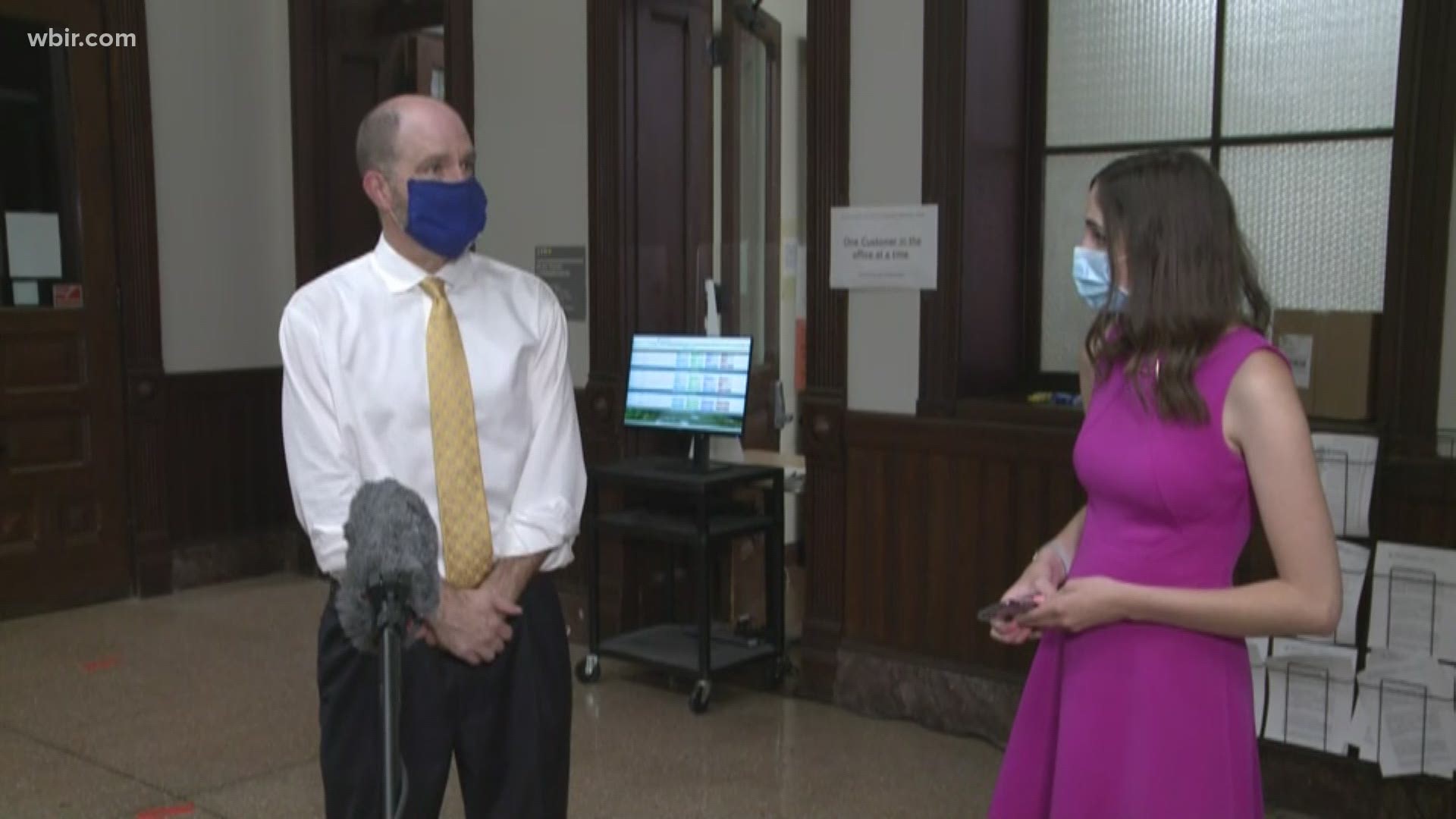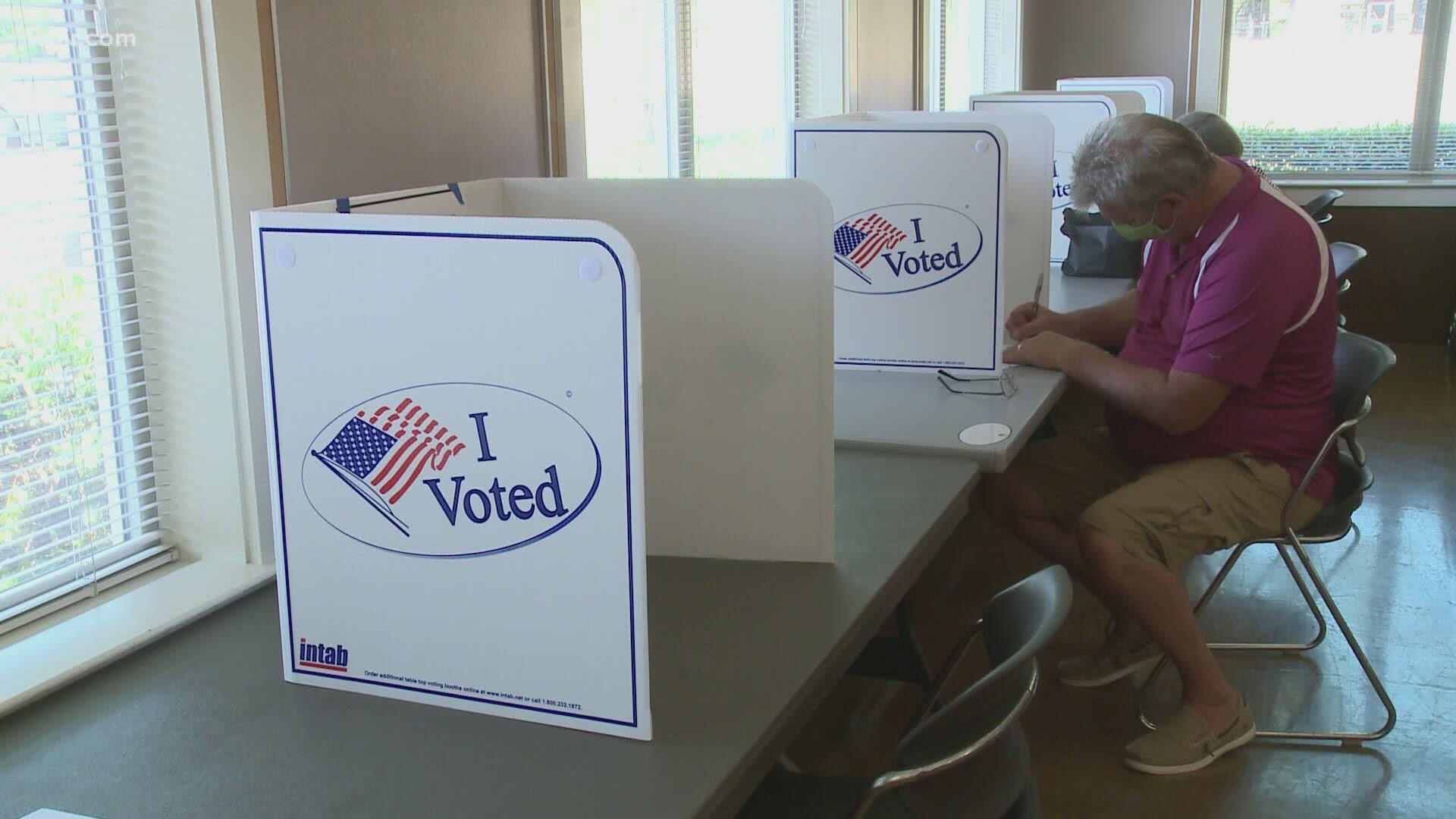KNOXVILLE, Tennessee — UPDATE 11 PM THURSDAY: Call it the August surprise -- and a pleasant one at that for the Knox County Election Commission.
Facing an extraordinary number of absentee ballots Thursday, election workers had them all processed and tabulated by roughly 10:30 p.m. What had appeared a daunting task when the day began ended up going smoothly, according to Chris Davis, elections administrator.
Knox County rarely sees the 11,500 or so absentee ballots that came in this summer. But then, it's been a hundred years or so since a pandemic disrupted all of American society.
Thousands of people chose to submit a mail-in ballot this summer for the Aug. 6 primary. Davis brought in extra people to start processing the masses of envelopes Thursday morning.
In the end, they got it all done with few problems. It also helped, Davis said, that fewer than expected last-minute ballots came into the downtown office Thursday afternoon.
PREVIOUS STORY: Promptly at 8 a.m. Thursday, a team of Knox County election workers downtown dived into the most talked about aspect of this summer's election: mail-in absentee ballots.
The county had received some 11,500 mail-in ballots from voters by the start of the day, with maybe hundreds or perhaps another 1,000 to 1,500 arriving by the end of the business day.
Most came from voters reluctant this summer to vote in person out of fear of COVID-19.
Typically, Knox County might have to process and count no more than a thousand absentee ballots in an election.
For example, for the August 2018 election, which included very competitive governor's primaries, it got a little more than 900. And for the August 2016 primary, it got around 700, figures show.
With the highly contagious virus still threatening, the number is much, much larger.
Processing absentee ballots is a labor intensive process, according to Chris Davis, county elections administrator.
Each ballot envelope has a barcode that must be scanned. Election workers have to also check the voter's signature and make sure it matches up with what the county election office has on file.


Ballots have to be surveyed to make sure they appear OK.
If there are questions about the voter's intent on the physical ballot, a team that includes a Republican and Democrat has to look it over to determine what the voter wanted and to agree on that.
Ballots then are scanned into a machine. Sometimes it'll kick them back out, which means the ballot has to be studied for whatever the problem is, Davis said.
As ballots are scanned into the machine, the actual votes are counted but the numbers remain secret and sealed. No one is allowed to know what they are or to do anything with them until the polls close.
In Knox County's that's usually at 8 p.m. unless a long line at a precinct slows things up.
Around 7:00 p.m., officials said they had received approximately 12,000 mail-in ballots.
Davis said he was impressed Thursday at how efficiently election teams processed those thousands of mail-in ballots. Twenty-four people, three rows of eight people, worked during the day, he said.
It offsets concerns that the office would have to dig out of a deep hole Thursday trying to prepare the ballots for tabulation.
But it's possible if the Election Commission gets a last-minute surge of mail-in submissions that that could slow the absentee count down, he said. It's possible, then, that election workers will be at it late into the night.
After polls close, election officials can begin tabulating all those thousands of recorded absentee votes. Davis said he expected that would be the last part of the evening's tallying process.
And if election teams are still processing mail-in ballots at 10 p.m. or 11 p.m. it could be a long night.


